How to invest in the multi-decade boom in industrial metals
The price of key industrial metals has already begun to rise. The renewable energy transition will take them higher, says David Stevenson. Here's how to profit.

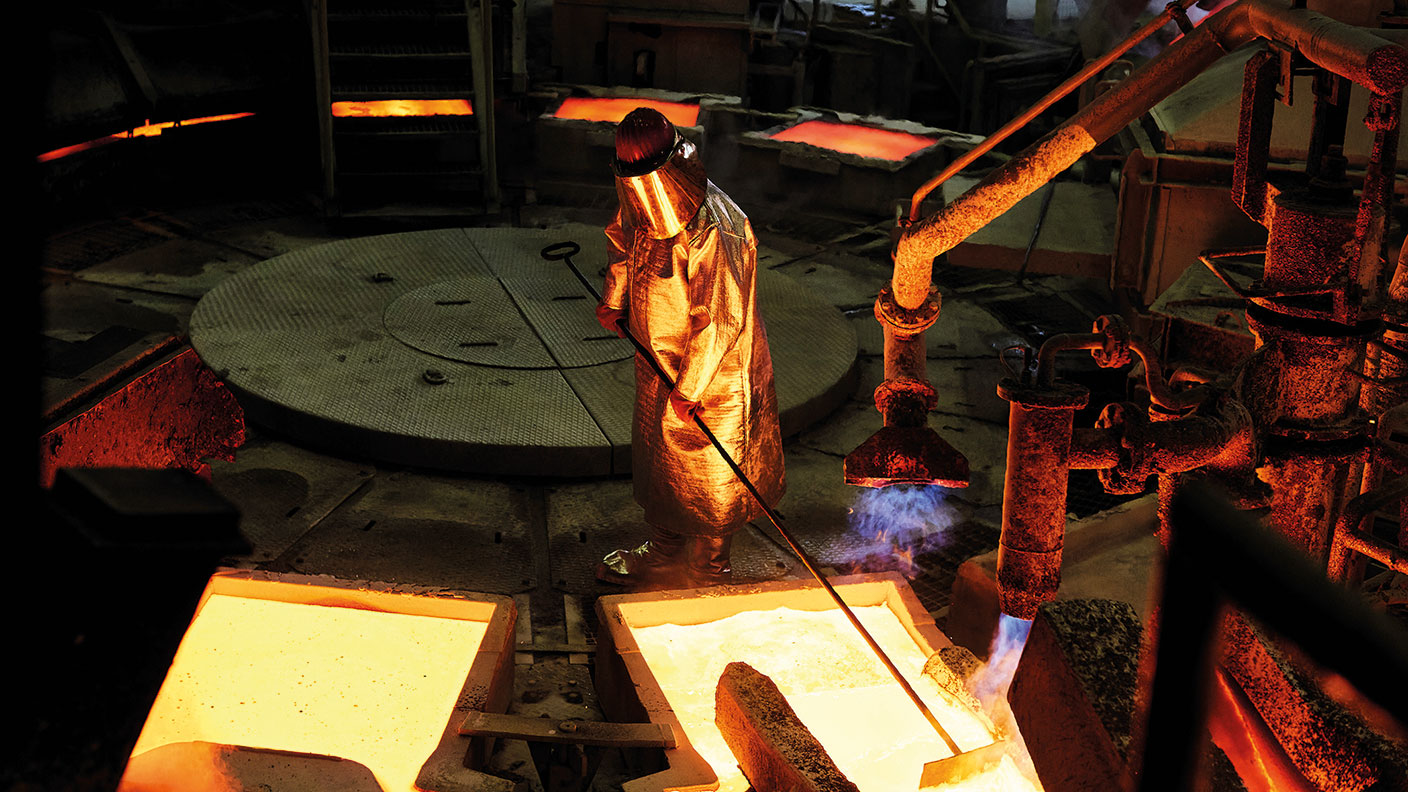
Get the latest financial news, insights and expert analysis from our award-winning MoneyWeek team, to help you understand what really matters when it comes to your finances.
You are now subscribed
Your newsletter sign-up was successful
Want to add more newsletters?

Twice daily
MoneyWeek
Get the latest financial news, insights and expert analysis from our award-winning MoneyWeek team, to help you understand what really matters when it comes to your finances.

Four times a week
Look After My Bills
Sign up to our free money-saving newsletter, filled with the latest news and expert advice to help you find the best tips and deals for managing your bills. Start saving today!
There’s a lot of excitement in the industrial metals market at the moment. Prices have gone up due to supply chain issues, which have been made worse by the war in Ukraine. However, there’s also a longer-term story playing out as we transition towards renewable energy.
The most commonly understood version of this is that we will all be buying lots more batteries to stick in our cars, hook up to at home, or place in containers which are then connected to the grid to provide stability because of intermittent renewable energy supplies.
But the energy transition will have a much wider impact than just batteries. The key driver is the electrification of lots of things, ranging from steel production through to aircraft, all of which will require more metals.
MoneyWeek
Subscribe to MoneyWeek today and get your first six magazine issues absolutely FREE

Sign up to Money Morning
Don't miss the latest investment and personal finances news, market analysis, plus money-saving tips with our free twice-daily newsletter
Don't miss the latest investment and personal finances news, market analysis, plus money-saving tips with our free twice-daily newsletter
Soaring demand
This will drive immense demand for the usual candidates of lithium, nickel and zinc. So it’s entirely plausible that we will run out of key supplies of strategic energy transition metals in the next few decades. And if we don’t, then it’s likely we’ll run into a surge in prices.
Westbeck Capital, one of the few active fund managers in the battery space, notes that a number of metals have jumped in price recently, such as the 75% leap in lithium carbonate in China this year. Electric vehicle (EV) manufacturers such as Lucid, Tesla, and Rivian have either cut production or announced delays. Chinese EV maker NIO says it will raise prices in May and Mercedes-Benz has become the first major manufacturer to acknowledge supply chain issues.
There are two ways of investing in the expected surge in demand and rising prices. The first is to buy into individual mining stocks exposed to this space, or into a diversified fund such as BlackRock World Mining (LSE: BRWM).
The managers of this trust are betting heavily on this strategic metals super cycle: for example, more than 20% of the portfolio is invested in copper miners. It may be a surprise to see that only just over 1% is in nickel, but this is slightly misleading because the big diversified miners – which make up 40% of the portfolio – are also the major nickel producers.
A direct play on prices
I’ve highlighted nickel here because while everybody seems to focus on other metals such as lithium, we seem to have ignored the crucial role of nickel. For a sense of how important it really is, look at two new exchange-traded commodity (ETC) funds from WisdomTree that invest in the metals that are likely to play a key role in the energy transition.
WisdomTree Energy Transition Metals (LSE: WENT) is the broader of the two: it has 25% in nickel, 20% in copper, 15% in aluminium, 13% in silver and 12% in zinc, plus smaller amounts in tin, platinum and gold. WisdomTree Battery Metals (LSE: WATT) is more focused and has 48% in nickel, 26% in aluminium, 16% in copper and 10% in zinc.
One could argue that a mining fund such as BlackRock World Mining is the safer way to invest into this long-term theme. Its focus on diversified miners with strong balance sheets and generous dividends should help dampen down some of the inevitable commodity volatility. However, these big companies are subject to lots of risks. Rio Tinto just announced a decline in earnings due to various operational issues, for instance. Investing in a basket of commodities is a direct way to play the cycle, stripping away corporate risk.
What’s more, if prices shoot up it’s not unreasonable to expect many governments to demand bigger royalties and taxes or even to threaten to nationalise key strategic metal assets. That might be bad news for equity investors but good news for investors in pure commodity markets. So a smarter course of action might be to invest in direct equities or a diversified fund, while also playing the direct commodity markets for these increasingly strategic metals through ETCs.
SEE ALSO:
The case for nickel – a crucial metal in the Green Energy Revolution
Three stocks that will profit from electric-vehicle growth
Why investors should consider adding Glencore to their portfolios
Get the latest financial news, insights and expert analysis from our award-winning MoneyWeek team, to help you understand what really matters when it comes to your finances.

David Stevenson has been writing the Financial Times Adventurous Investor column for nearly 15 years and is also a regular columnist for Citywire.
He writes his own widely read Adventurous Investor SubStack newsletter at davidstevenson.substack.com
David has also had a successful career as a media entrepreneur setting up the big European fintech news and event outfit www.altfi.com as well as www.etfstream.com in the asset management space.
Before that, he was a founding partner in the Rocket Science Group, a successful corporate comms business.
David has also written a number of books on investing, funds, ETFs, and stock picking and is currently a non-executive director on a number of stockmarket-listed funds including Gresham House Energy Storage and the Aurora Investment Trust.
In what remains of his spare time he is a presiding justice on the Southampton magistrates bench.
-
 Should you buy an active ETF?
Should you buy an active ETF?ETFs are often mischaracterised as passive products, but they can be a convenient way to add active management to your portfolio
-
 Power up your pension before 5 April – easy ways to save before the tax year end
Power up your pension before 5 April – easy ways to save before the tax year endWith the end of the tax year looming, pension savers currently have a window to review and maximise what’s going into their retirement funds – we look at how
-
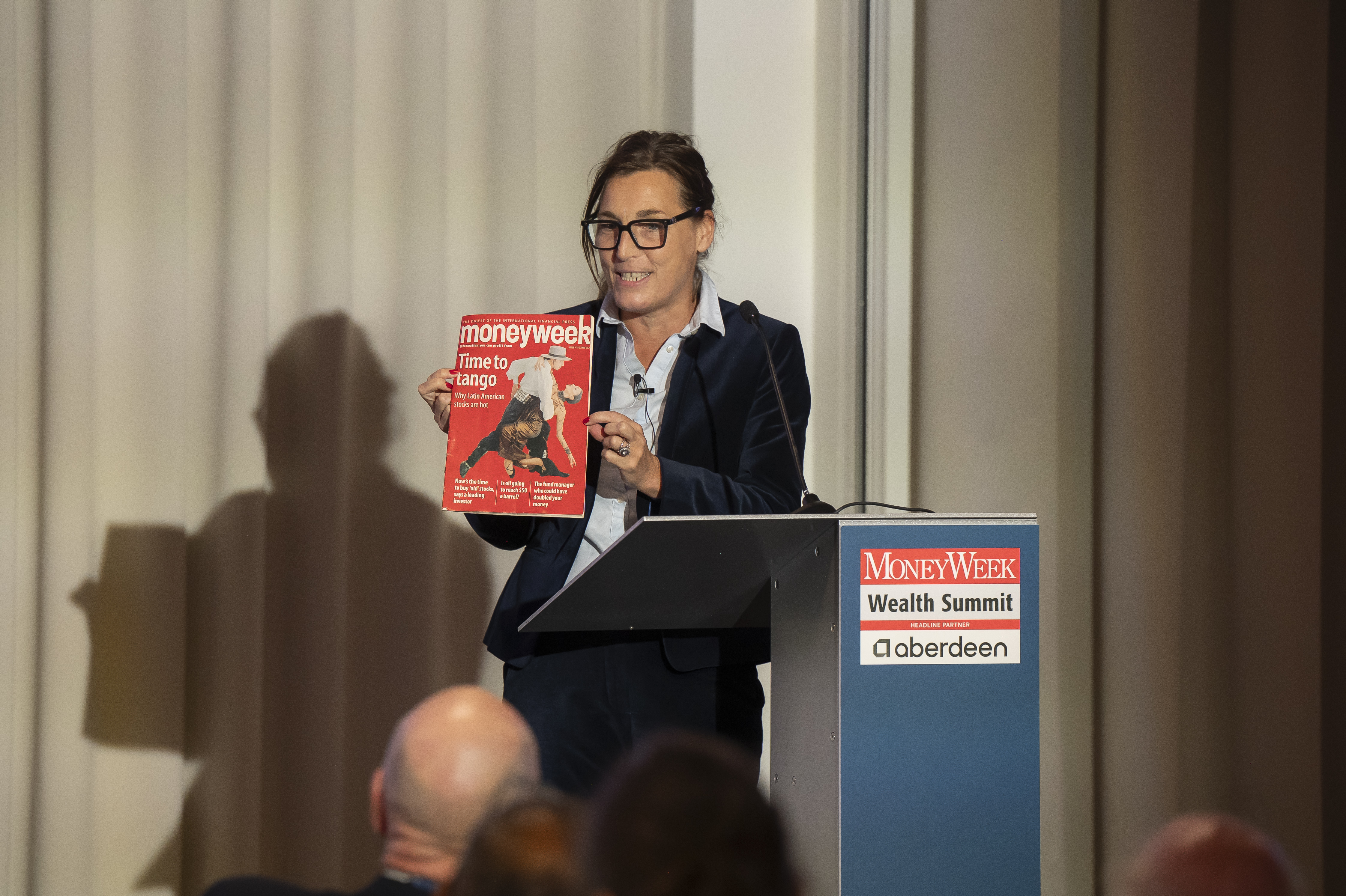 Key lessons from the MoneyWeek Wealth Summit 2025: focus on safety, value and growth
Key lessons from the MoneyWeek Wealth Summit 2025: focus on safety, value and growthOur annual MoneyWeek Wealth Summit featured a wide array of experts and ideas, and celebrated 25 years of MoneyWeek
-
 The Stella Show is still on the road – can Stella Li keep it that way?
The Stella Show is still on the road – can Stella Li keep it that way?Stella Li is the globe-trotting ambassador for Chinese electric-car company BYD, which has grown into a world leader. Can she keep the motor running?
-
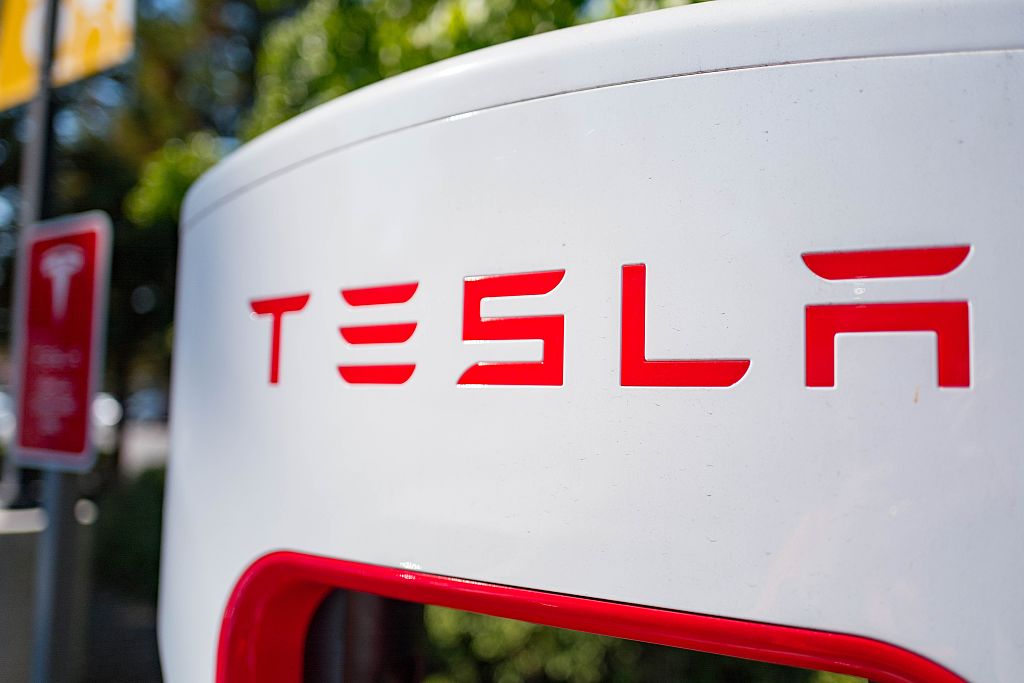 Tesla seeks approval to supply electricity to UK homes – could it disrupt the energy market?
Tesla seeks approval to supply electricity to UK homes – could it disrupt the energy market?Tesla has applied for a license to supply UK households with electricity, but taking on the biggest providers could prove challenging
-
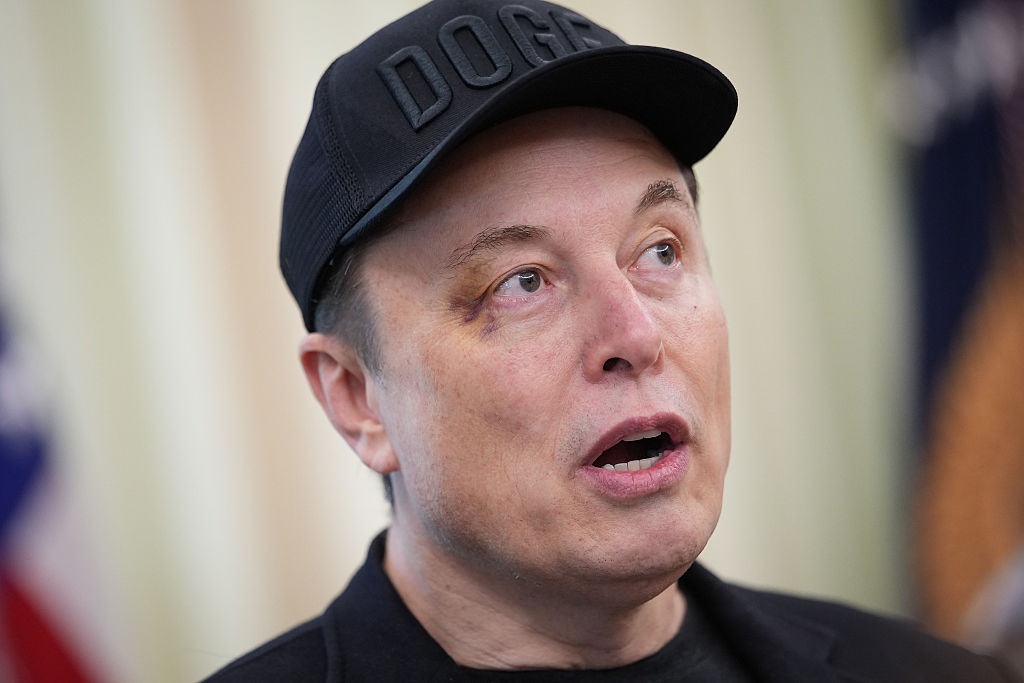 Tesla shares slump over Trump/Musk feud
Tesla shares slump over Trump/Musk feudA war of words has sent Tesla shares spiralling to the company’s largest single-day value decline in history
-
 Tesla is no longer the world’s largest electric car maker. Should you invest?
Tesla is no longer the world’s largest electric car maker. Should you invest?Investors need to weigh up the potential of Tesla’s autonomous technology drive against struggles in its core carmaking business when deciding whether or not to invest
-
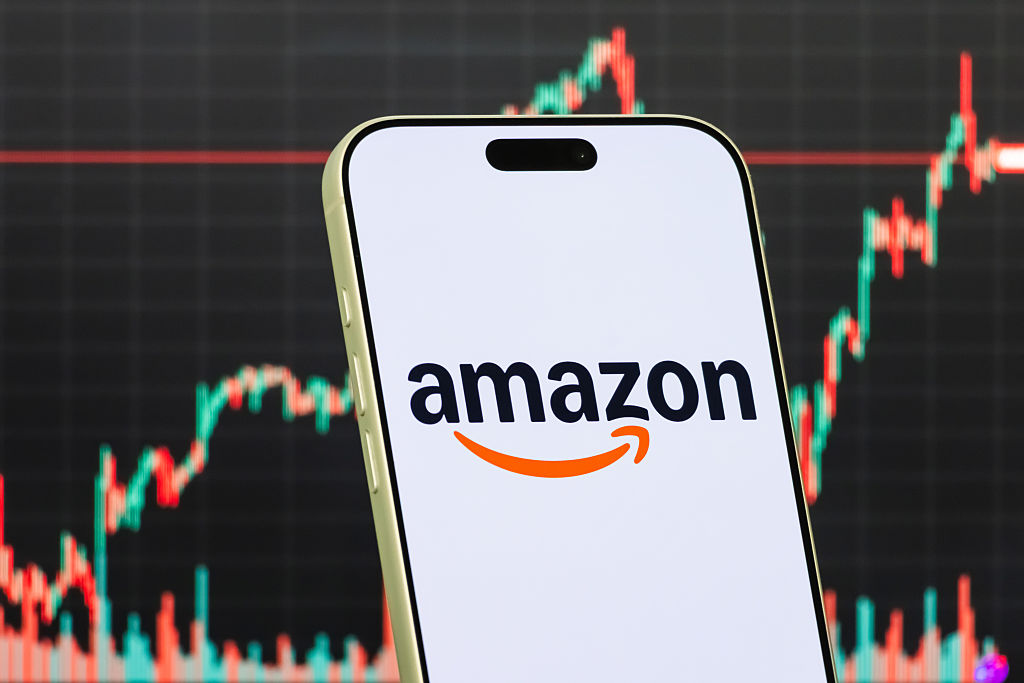 Amazon shares fall on profitability concerns
Amazon shares fall on profitability concernsA big increase in capital spending plans compounded an earnings miss for Amazon following its Q4 results
-
 Halifax: House price slump continues as prices slide for the sixth consecutive month
Halifax: House price slump continues as prices slide for the sixth consecutive monthUK house prices fell again in September as buyers returned, but the slowdown was not as fast as anticipated, latest Halifax data shows. Where are house prices falling the most?
-
 Rents hit a record high - but is the opportunity for buy-to-let investors still strong?
Rents hit a record high - but is the opportunity for buy-to-let investors still strong?UK rent prices have hit a record high with the average hitting over £1,200 a month says Rightmove. Are there still opportunities in buy-to-let?